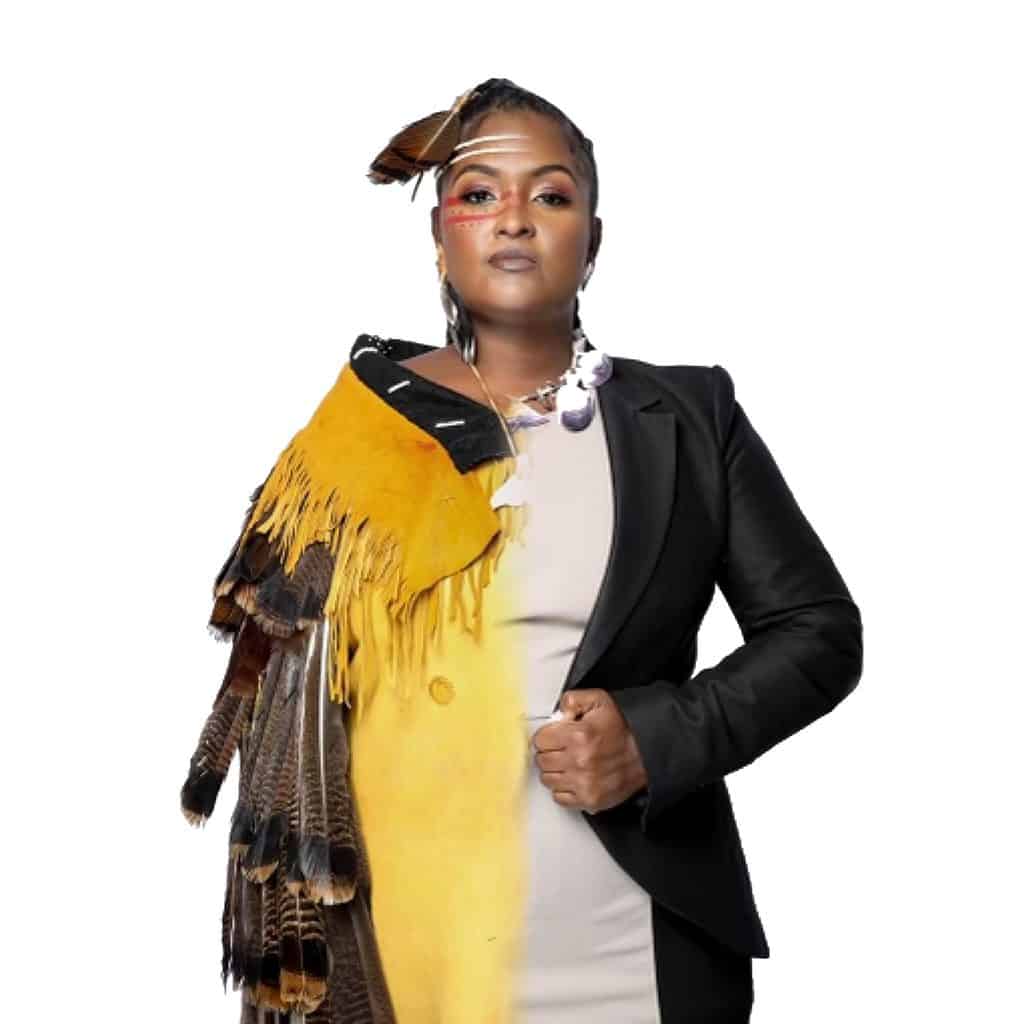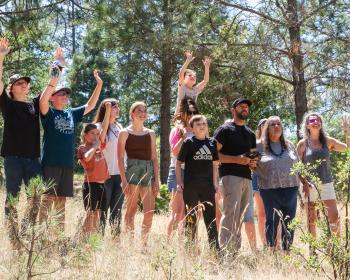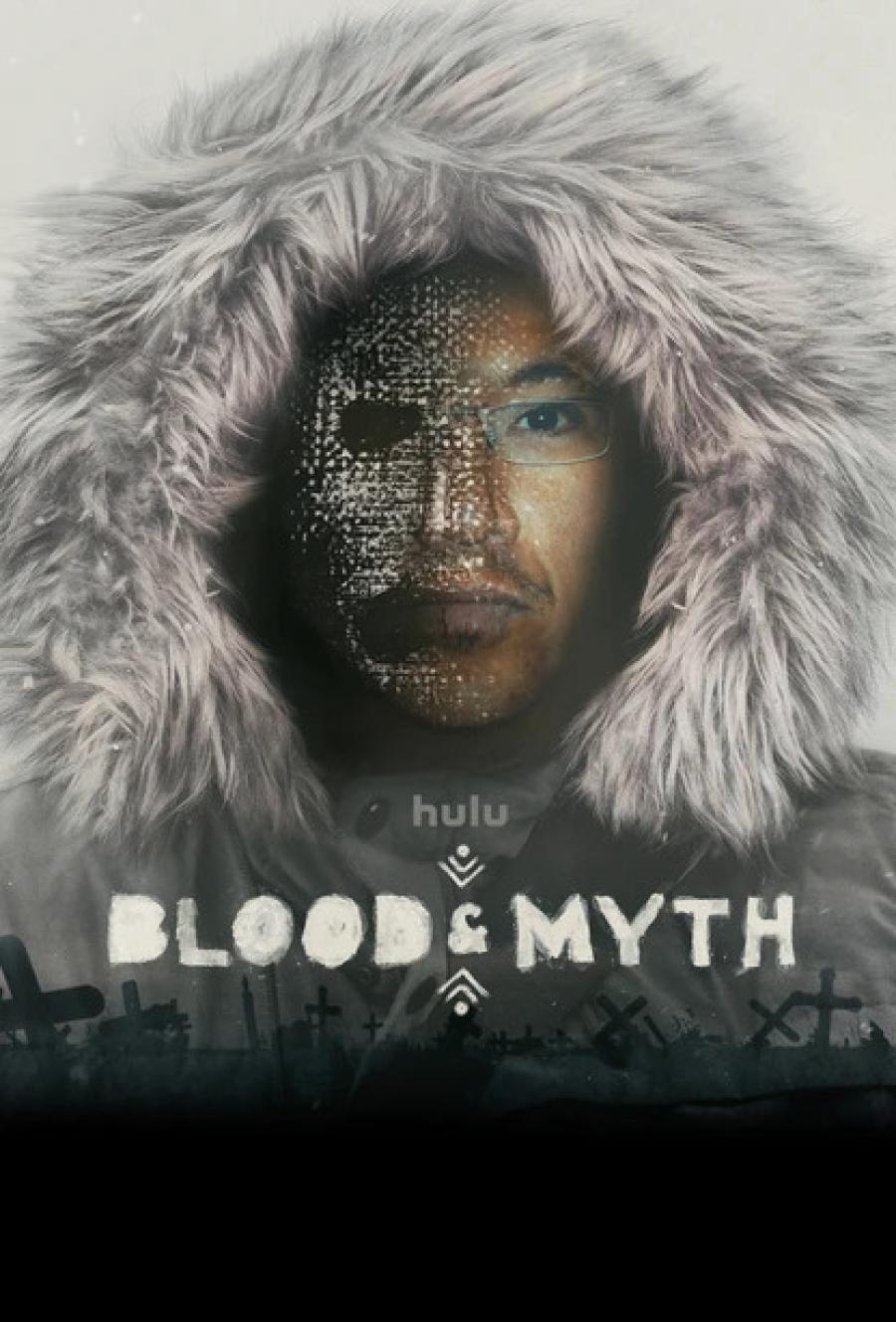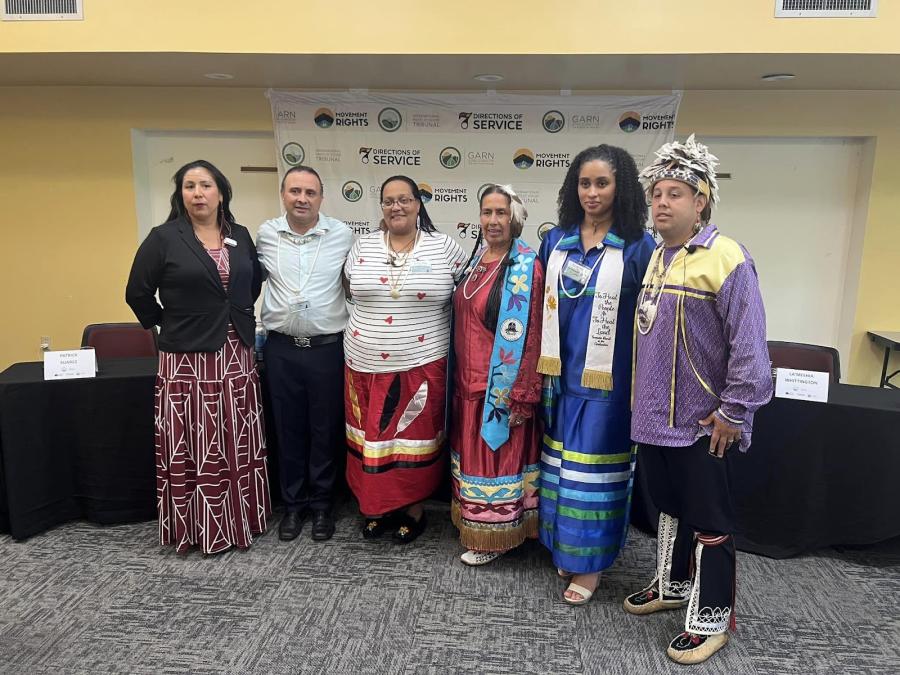
For 50 years, Cultural Survival has partnered with Indigenous communities to advance Indigenous Peoples' rights and cultures worldwide. We envision a future that respects and honors Indigenous Peoples' inherent rights and dynamic cultures, deeply and richly interwoven in lands, languages, spiritual traditions, and artistic expression and rooted in self-determination and self-governance.
Through the Capacity Building Program, Cultural Survival provides opportunities through youth fellowships, training, gatherings and community exchanges, international forum participation, networking, one-on-one mentoring to Indigenous individuals and organizations, and residency opportunities. Our goal is to increase and strengthen Indigenous communities' leadership, technical, organizational, advocacy, and sustainability capacities to exercise their rights to freedom of expression, self-determination, and ways of living, and to elevate their cultures and languages. Through our communications work, we strive to build awareness and reclaim the narrative while shifting paradigms, consciousness, and agency. Working with Indigenous Peoples and building a robust global network for over five decades, we recognize firsthand the importance of amplifying Indigenous voices and visions through Indigenous media and communications. Cultural Survival’s communications connect Peoples, movements, organizations, and others through storytelling across landscapes, waterways, and issues both locally and globally. We are excited to announce our Writer’s Residency Program thanks to the financial support of the Trust for Mutual Understanding.
Our Writer’s Residency Program is a meaningful opportunity for Indigenous writers to continue their creative work, share their expertise, and enhance their knowledge and exposure to writing related to topics important to them and their communities. We are pleased to announce our inaugural Writers in Residence, who will be working with us in 2022 and 2023.

Photo by RaQuita Weathers, Beller Rouge Photography, LLC.
Chenae Bullock
Chenae Bullock is a Tribal citizen of the Shinnecock Nation and descendant of the Montauk Peoples in Long Island, New York, and is also African American. Her given name is Sagkompanau Mishoon Netooeusqua (“I lead Canoe I am butterfly woman.” Chenae is currently the Managing Director for Little Beach Harvest, a Cannabis business wholly owned by Shinnecock Nation. She is also the Founder and CEO of Moskehtu Consulting, LLC, an Indigenous-owned and solely operated cultural and heritage preservation firm. Chenae is an entrepreneur, pioneer, Indigenous perspective historian, and cultural practitioner.
Following her ancestors' footsteps as whalers and business leaders, the foundation of her work has been based on the resurgence of the traditional canoe culture of the northeast coastal Algonquin communities. She has organized historically sacred paddles in the ancient waterways of the northeastern seaboard. Some of her most recent work has led her to assess for signs of submerged cultural history for the Atlantic Shores Cultural Core Analysis. She successfully served as a Tribal Alternate on behalf of the Shinnecock Nation for the Mid-Atlantic Committee on the Ocean, which facilitates coordination and collaboration among governmental entities and stakeholders to enhance the vitality of the region’s ocean ecosystem.
Most recently, Chenae became a published author of her book, “50 Plant Medicines: Indigenous Oral History & Perspective,” which invites readers into a journey of learning about plant medicines historically used by Native Tribes and reflects her work with Eastern Tribes. Chenae’s mission is to illuminate the view and understanding of Indigenous Peoples through cultural competency in government and environmental spaces, brand partnerships, and pure connectivity to what she values most, humanity. She says, “What I’ve found over the last 15 years, being a Native and working in public and private sectors as well as nonprofit organizations, is that a lot of these organizations are unaware of how to approach Tribes due to a lack of cultural competency. They’re still thinking that we no longer exist. The whole purpose of Moskehtu Consulting is to bridge that gap, to become a liaison between the Tribal community and these businesses and organizations.”
Chenae has published several articles in the past in the Cultural Survival Quarterly magazine, including "Decolonizing Our Relationships with Each Other and Mother Earth", "Indigenous Peoples March Captures the World’s Ear", and "MOGUL: Reclaiming Heritage Through Indigenous Enterprise."
Photo by Rafa Rodriguez (IG: @Rafa213)
Claudio Ramirez Hernandez
Claudio Ramirez Hernandez is Na Ñuu Savi (a Person from the Region of the Rain, Mixtec) born in Santa Maria, California, a central coast farming community, where many from his family’s municipality of San Juan Mixtepec, Oaxaca, Mexico, have migrated. Claudio first became active in community work as a youth organizer alongside the working class community of Santa Maria, through the nonprofit People United for Economic Justice Building Leadership Through Organizing (PUEBLO). He went on to co-found People Respecting Others United by Diversity (PROUD) at the Pacific Pride Foundation, Santa Maria’s local 2SLGBTQ+ nonprofit. PROUD was a safe space for 2SLGBTQ+ youth who experienced homophobic attitudes at school or at home. As a volunteer for the Pacific Pride Foundation, he participated in their food pantry program and co-presented 2SLGBTQ+ history awareness workshops to local high schools and juvenile detention center.
More recently, Claudio served as Office Manager for Comunidades Indígenas en Liderazgo, where he participated in efforts related to their Undocu-Indigenous Fund and in organizing data for the We Are Here mapping project. Claudio was also a 2021 Community Coalition Community Organizing Fellow, through which he had the opportunity to learn about the political landscape that has shaped Southcentral Los Angeles and how to collectively organize to build support for issues facing under-invested communities. In his spare time, he enjoys writing reflections and poetry about Indigenous communities and his own experiences on Instagram and Tumblr.
Claudio holds an associate’s degree in psychology and a bachelor's degree in anthropology with a minor in Comparative Linguistics. His undergraduate work includes language revitalization projects in his variant of Tu’un Savi (Language of the Rain, Mixtec), such as co-founding Cal State LA’s Language Documentation and Revitalization Space. He is currently pursuing a master’s degree in Linguistic Anthropology at Cal State LA, through which he hopes to write about the trajectory of Tu’un Savi speakers from San Juan Mixtepec and how they make decisions regarding language in the context of migration.
Stay tuned for writing from Chenae and Claudio!



